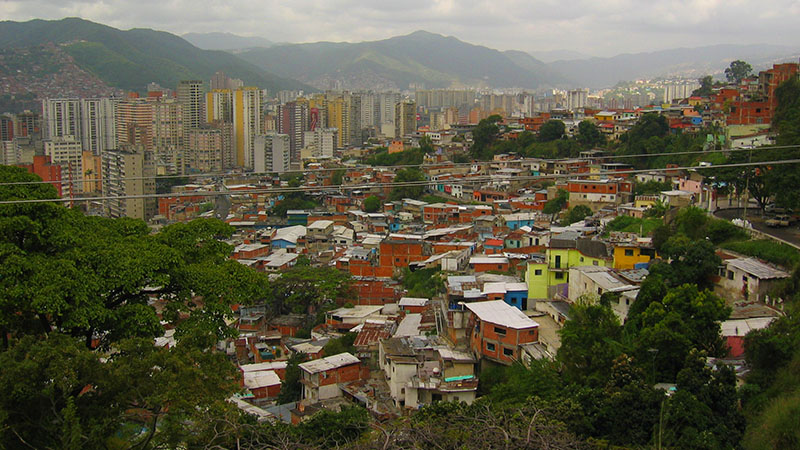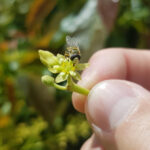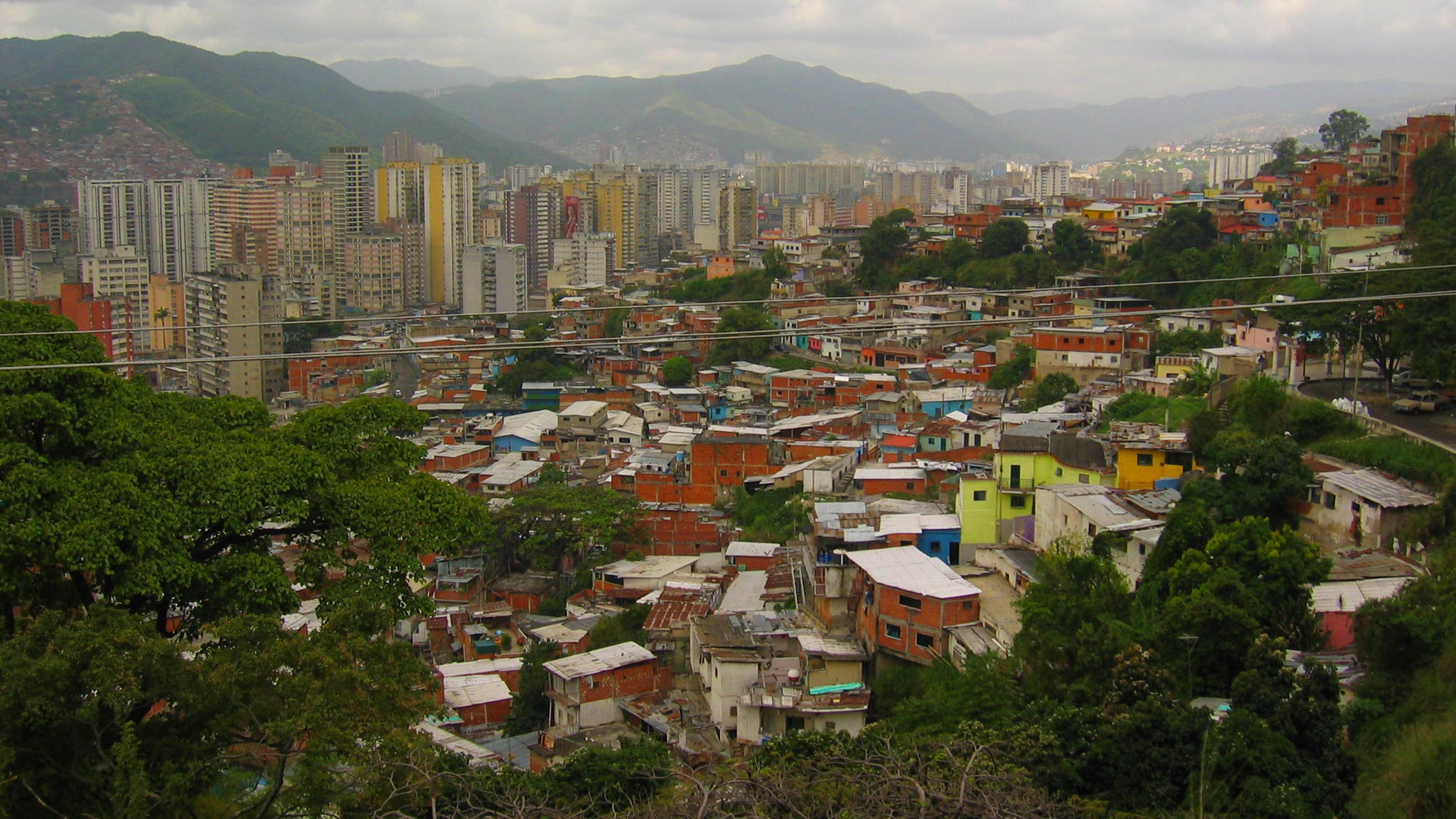Venezuela’s Scientific Implosion
This week, the Institute of Tropical Medicine at the Central University of Venezuela in Caracas was robbed for the sixteenth time in a year, with looters stripping out cabinets and carrying away everything from medical records and samples to computers and laboratory equipment. It’s the latest episode in the steady decline of scientific institutions in the country, which is beset by a flagging economy and failing totalitarian government.
Last weekend, dozens of livestock were stolen from the University of Zulia’s veterinary school.

While laboratories in Venezuela are ransacked, many researchers are leaving for greener pastures. (Visual by Jaume Escofet/Flickr)
With many Venezuelans facing severe shortages in even basic resources like food, medicine and electricity, looting has become a daily occurrence, and scientists at some of the country’s renowned institutions can only look on as supplies and functioning equipment become scarce, salaries are gutted by inflation, and basic research grinds to a halt.
“Theft has become routine,” said Gioconda San Blas, a biochemist and president of Venezuela’s Academy of Physical, Mathematical and Natural Sciences, who recently wrote about the looting of Venezuela’s laboratories. “And they’re not only stealing things. They’re taking biological samples. How do you replace the biological heritage of a laboratory?”
It’s a question that would have seemed absurd just a generation ago. At its peak, the oil-rich country was producing celebrated scientists like Jacinto Convit, a pioneer in leprosy research and Nobel prize nominee, and Humberto Fernández Morán, inventor of the diamond knife still used in surgeries today. But funding for scientific research has evaporated, and Venezuelan researchers are facing increasingly tough choices.
“The federal sources of science funding are practically paralyzed due to an absence of economic funds,” said Alberto Fernandez, a chemistry professor at the the Central University. “We’re living a tragedy.”
Gabriel Fraute, a chemistry graduate student at the University of the Andes in the western city of Mérida, said he had to pick up a job at a restaurant to help support his family while he tries to finish his thesis. In the laboratory, he says, things are dire. Virtually no reagents are left in the country, making chemical experiments of any kind difficult, if not impossible.
“We’re very behind in instruments. They’re very old, broken and difficult to repair,” he said. “It’s also difficult to access scientific journals.”
Knowledge sharing with the outside world has been hampered in other ways, too, says Audy Salcedo, a mathematics professor at the the Central University. “A Mexican professor friend of mine, who studies the same area that I do, has gone to three international events this year with funding from their university,” said Salcedo. “I’ve not been able to go to any in the last three years. How do you discuss results? How do you stay up to date?”
For an increasing number of Venezuelan researchers, the answer to that question has been drastic: leave the country.
Even before the current crisis, San Blas said, Venezuela’s public universities had been struggling to operate on skeleton budgets and make-work equipment. But salaries have reached alarming new lows, and many of Venezuela’s best and brightest are getting out while they can. “A professor at the top of his career makes 50,000 bolivars a month,” San Blas noted, adding that a starting salary for a young scientist can be as low as 30,000 bolivars monthly.
Venezuela’s exchange rates are famously cryptic and complex, but at current black market rates, that amounts to about $50 and $30 per month, respectively. A single bag of sugar, can go for as much as 3,000 bolivars. A ream of paper today costs the same.
“I looked for a post-doc in the exterior,” said Félix Moronta, a Venezuelan biologist who recently moved his family to Italy after finding a post-doctoral position there, “because … my salary in Venezuela was not enough to cover the most basic necessities like food, health, education and housing for my daughter.”
San Blas doesn’t blame him. “If I were 30 years younger,” she said, “I would have left.”











Comments are automatically closed one year after article publication. Archived comments are below.
Me siento muy triste por el estado de la communidad cientifica en Venezuela. La Dr San Blas es un cientifico de primera clase, y todos sabemos que el que se dedica a la ciencia en Venezuela es por razones muy altruistas, siempre ha sido un reto trabajar en ciencia, lo que la comunidad cientifica ha construido ha sido con mucho trabajo. Ver que todo ese trabajo esta siendo destruido es una tragedia humana, es la vida y el legado de personas que se han dedicado su vida. Ademas la perdida que sufre la comunidad por no tener un centro coentifico en su region, como era en varias localidades cerca del IVIC, donde se respiraba un ambiente progresista y abierto. Es una gran perdida.
The article points out one of the worse crisis in the Americas: A military and narco state that practices cohesion via deprivation of food, medicines and education. Venezuelan Chavismo failed and in doing that it also destroyed other institutions and individuals that are seen as the enemies of that regime. The universities are a clear target. This year two main research centers in the Universidad Central of Venezuela were also completely destroyed by regime-friendly custodians clans who work in the University. There is a very planned mission to demoralized the professors and researchers that were not alined with government politics. This plan is not new and it was very much present while Chavez was in power, and continued with Maduro’s government. The lack of food and the poor nutrition due to scarcity of milk and sources of protein, and overwhelming health needs of the population are still the main cause of live disruption in Venezuela. Therefore education and research may seems as non-escencial society needs. In the area of human rights violations the regime ranks top in the world for assassination rate, incarceration and torture and common practices of government military. In truth the scientific implosion is the icing of the cake, from all the crimes committed by actual regime in Venezuela, observing the devastation of the scientific community is one of many other areas of targeted attack, and the voice of the people are silenced by lack of TV broadcasting leaving social media as the only source of information and action.
I don’t know about venezuela’s eduacation development, but I wanna explore venezuela’s scientific for comparation in my country Indonesia. UMBY Kampus Kebanggaanku
It’s TOO HARD do science in #Venezuela: low wages, very low budgets to do research, high inflation, strong currency control. No funds to travel (and with the ingredient that many airlines have left the country) at international conferences; libraries outdated, computers are too expensive and difficult to find. Thanks to the charity of colleagues outside #Venezuela, has been the ONLY way to get papers/books and other supplies. IVIC’s library it’s outdated starting 2015 (frightful). Also our Internet speed it’s very low (~1 Mbps or less). The research budget at my university (UNET, Táchira) for this year is: 3.600.000 BsF, and this amount can buy about 4 desktop computers. How I feel about be scientist in a small university near the border of #Venezuela at the last years (from 2008): frustrated. The scientific community (which still survives) in Venezuela NEED HELP! from international organizations and institutions of prestige (UN; OAS; UNESCO; ICTP; and so forth). And these are some of the aspects that we have to point.